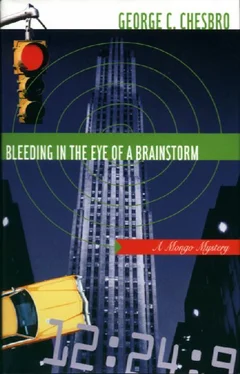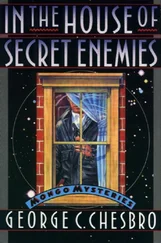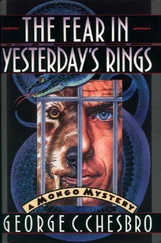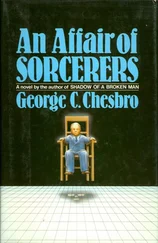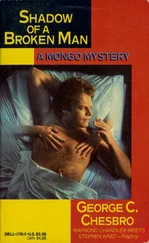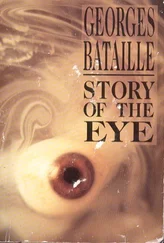George Chesbro - Bleeding in the Eye of a Brainstorm
Здесь есть возможность читать онлайн «George Chesbro - Bleeding in the Eye of a Brainstorm» весь текст электронной книги совершенно бесплатно (целиком полную версию без сокращений). В некоторых случаях можно слушать аудио, скачать через торрент в формате fb2 и присутствует краткое содержание. Жанр: Детективная фантастика, на английском языке. Описание произведения, (предисловие) а так же отзывы посетителей доступны на портале библиотеки ЛибКат.
- Название:Bleeding in the Eye of a Brainstorm
- Автор:
- Жанр:
- Год:неизвестен
- ISBN:нет данных
- Рейтинг книги:3 / 5. Голосов: 1
-
Избранное:Добавить в избранное
- Отзывы:
-
Ваша оценка:
- 60
- 1
- 2
- 3
- 4
- 5
Bleeding in the Eye of a Brainstorm: краткое содержание, описание и аннотация
Предлагаем к чтению аннотацию, описание, краткое содержание или предисловие (зависит от того, что написал сам автор книги «Bleeding in the Eye of a Brainstorm»). Если вы не нашли необходимую информацию о книге — напишите в комментариях, мы постараемся отыскать её.
Bleeding in the Eye of a Brainstorm — читать онлайн бесплатно полную книгу (весь текст) целиком
Ниже представлен текст книги, разбитый по страницам. Система сохранения места последней прочитанной страницы, позволяет с удобством читать онлайн бесплатно книгу «Bleeding in the Eye of a Brainstorm», без необходимости каждый раз заново искать на чём Вы остановились. Поставьте закладку, и сможете в любой момент перейти на страницу, на которой закончили чтение.
Интервал:
Закладка:
I felt another chill, and this time I actually shuddered. "How many patients were there at Rivercliff?"
"I guess maybe forty."
"What about your family? Why didn't they press for your release?
And what about the families of the other patients who died? Didn't anybody want to claim the bodies?"
"None of us had families-in fact, I think that's one of the reasons we were selected to go to Rivercliff. I'd been transferred from a state hospital in Oklahoma. Everyone I ever talked to had been transferred to Rivercliff from some state hospital. And nobody there had families-at least not families that cared about what happened to them. I'd been abandoned when I was a child, but a lot of the patients there had been orphaned."
"Jesus Christ," I mumbled to myself. I'd stumbled into a nightmare. What I'd witnessed the night before with Mama Spit was horrible enough, but the nightmare was just growing darker and deeper. And I was merely hearing about it; the man sitting across the table from me had lived it. It all made me very sad, and very, very angry.
"Mongo, you all right? You look funny."
"Yes, Michael, I'm all right," I replied, looking up at him and forcing a smile. "Just a touch of indigestion. Look, let's assume you're right: one criterion for selecting a patient for transfer to Rivercliff was that the person had nobody on the outside who would be asking questions about him. Why? None of you was ever released, even after your symptoms had been brought under control. Why?"
The questions had been rhetorical, but Michael answered them anyway. "I don't know, Mongo."
"I assume Rivercliff was the only place you were ever given that medication?"
"Yes."
"Well, they had to be up to more than just the testing of a new drug they could never hope to market; they wouldn't even be able to publish papers or data, because they'd end up in prison for illegal and dangerous human experimentation. I think it's safe to assume they weren't acting out of humanitarian impulses. So what did the doctors at Rivercliff want with you? What could they hope to accomplish when they'd broken every canon of medical ethics in the book and could never hope to see the drug they'd developed used in any patient population outside the hospital?"
"I don't know, Mongo."
"All of the patients there took these capsules?"
He nodded.
"Were you or anybody else there ever given any other kind of medication?"
"No. We didn't need any other medication. I remember when I first went there I was on all sorts of different medications, and I was a mess. I was making these uncontrollable movements-"
"Dyskinesia."
"Yeah, I guess that's what they call it. Anyway, the first thing the doctors did when I got there was take away all my other meds and give me one of those capsules. When I woke up the next morning, I felt. . like I feel now. The voices in my head had stopped, and I could think clearly. And there weren't any of the lousy side effects I used to suffer from with the old meds."
"And they never talked about releasing you?"
"They talked about it, but I knew they wouldn't do it. They never released anybody."
I pointed to the capsule in the center of the table. "What do they call this stuff?"
"They never called it anything; it was just our meds."
"All right, Michael, describe your daily routine for me, if you will. Did you have individual therapy sessions, group counseling, what?"
He shook his head. "Mostly, we could do whatever we wanted all day-there were game rooms, a gym, and a swimming pool. They always had videotapes of the latest movies, and there was a good library. The doctors only seemed interested in asking us questions, and they'd do that, oh, maybe two or three times a week. If they were interested in what you had to say, they'd take you to another part of the hospital and give you some tests. That never happened to me, but I heard about it from others."
"What kinds of questions did the doctors ask?"
"They wanted to know how we were feeling."
"You mean whether you were feeling disoriented, hearing voices, feeling paranoid, that sort of thing?"
"No. They wanted to know if we felt anything, or could do anything, we hadn't felt or done before. You see, people had different reactions to the meds. We all got better mentally, and for the most part we stayed that way. But some people started to change in different ways; sometimes they'd get really good at things. I think this is what the doctors were interested in. And I know they made changes in the meds from time to time."
"How could you tell that if the meds always came in the same black-and-yellow capsules?"
"Aftertaste-sometimes it would change. Also, my stomach could tell; sometimes the meds made me sick, sometimes not. And I would feel different; I could still think clearly, but my emotions would be stronger, or weaker. Sometimes I'd have diarrhea, and other times I'd be constipated. The meds I have now work pretty good."
"Michael, I'm still not sure I'm following you. What kinds of things would people get good at? You mean like chess?"
"Yeah, but that's just me. I didn't know I could play chess like I do now while I was there, because nobody played. They didn't even have any sets. But there was one guy who suddenly got real good at music; there was a piano in one of the recreation lounges, and he taught himself to play. Hum him any tune, and he could sit down at the piano and play it. He even started writing music."
"Like you, he discovered a talent he hadn't realized he had?"
"Yes-but it wasn't always a talent. There was a woman there- her name is Greta Wurlitzer, and she was on the bus with us-who suddenly developed incredible night vision. She could see at night like a cat. The problem was that the daylight hurt her eyes, so she had to wear dark glasses during the day. Greta used to joke about it, call herself 'the night owl.'
I was immediately reminded of Margaret Dutton and the remarkable senses of taste and smell she had displayed during our Thanksgiving dinner, super-keen faculties I now realized she must have developed within hours after she had started taking the drug in the capsules. I said, "The meds obviously relieved the symptoms of schizophrenia and restored your emotional balance. But you're saying the doctors at Rivercliff were mainly interested in the side effects of the drug?"
He shrugged, glanced nervously at the clock on the wall to our left. "I guess so. I really don't know, because we were never told why the questions were being asked. I'll bet they would have run tests on me too if they'd known about this chess thing."
"Oh, I think you're absolutely right. Michael, were any of the patients at Rivercliff ever taken off the meds, just to see what would happen?"
"No, at least not that I know of. We were always given our meds."
"Did any of the patients ever forget to take their meds?"
He shook his head. "A nurse always brought us our meds in a paper cup every day after lunch, and then would stand over us to make sure we took it."
I sipped at my coffee, which had gone cold, and thought about the many levels of what I could only think of as monstrous evil committed by the doctors at Rivercliff, and whoever was behind them. It was not only that they had imprisoned innocent men and women for life, but they had somehow, in secret, managed to develop what could only be called a wonder drug, the mental health equivalent of a cure for AIDS, and had not bothered to tell anybody about it because they were more interested in the drug's side effects. Then again, they had good reason to keep their activities secret; a drug that changed body chemistry to a point where a patient would spontaneously bleed to death if he stopped taking it wasn't a likely candidate for FDA approval.
Читать дальшеИнтервал:
Закладка:
Похожие книги на «Bleeding in the Eye of a Brainstorm»
Представляем Вашему вниманию похожие книги на «Bleeding in the Eye of a Brainstorm» списком для выбора. Мы отобрали схожую по названию и смыслу литературу в надежде предоставить читателям больше вариантов отыскать новые, интересные, ещё непрочитанные произведения.
Обсуждение, отзывы о книге «Bleeding in the Eye of a Brainstorm» и просто собственные мнения читателей. Оставьте ваши комментарии, напишите, что Вы думаете о произведении, его смысле или главных героях. Укажите что конкретно понравилось, а что нет, и почему Вы так считаете.
